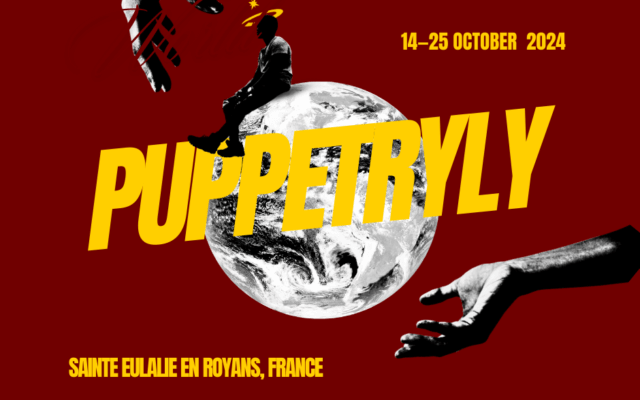Programme & action: ERASMUS+, Key Action 1: Training course
Venue: Demre – Kas, Antalya, Turkey
Dates: 22 April – 5 May 2016
Participants: Eva Valentová Kryštof Karásek Eva Mašková Ivana Sedláčková
Group leader: Jakub Gabriš
Please read the info-pack and project blog: creactivelycianyouth.blogspot.com
Participating countries: Austria, Czech Republic, Slovakia, Italy, Lithuania, Turkey
Hosting organisation: Lycian Pathfinders
Project video-diary: https://www.facebook.com/the.lycian.pathfinders/?fref=ts
Project report:
Merhaba!, this word is typical for so nice country as Turkey is and it means Hello! Youth Mobility Project was organized from 21st to 4th May 2016 by Lycian Pathfinders. The project got together about 30 participants from 5 countries – Austria, Czech Republic, Italy, Lithuania, Slovakia and hosting country Turkey.
In the first day of the project participants arrived from different countries to the southern part of Turkey, to areaAntalya. Someone of them visited during the journey a beautiful city of Istanbul, which is deeply connected with the history and development of this part of the world. The project has taken place in three locations, the first was camping near the town of Demre, directly at the marina Çayağzı. There was successful familiarization of the participants, introducing and presenting of each country, various team building activities and many of other activities relating to non-formal education. Our Czech group organised during the Czech cultural evening “night game”, what gain great success from another participants from others countries.
There was trekking on the Lycian Way in the second part of the project. There was not only the union of individual participants in the project, but also different ways of thinking of individual participants from different cultural backgrounds. Nice and amazing experience for all!!! Lycian Way is about 500 km long and runs along the coast between towns Fethiye and Antalya. It is an area of wild beaches, gorges, mountains, deserted places full of goats and other animals…so beautiful and romantic place. Though we passed only a small part of this way, we have unforgettable experiences and memories which will remain forever in our hearts.
The last part of our program took place in the town of Kas and focused on issues of democracy, the European Union accession and other related topics to international relations. I would like to thank to turkish organization and of course to everyone who helped make a perfect atmosphere of this project. I hope to see you soon!
Jakub Gabriš
_________________
Please read the results of the project survey:
CLY Project Survey
The current survey is prepared within the scope of Creactive Lycian Youth; Youth Mobility Project funded by Erasmus+ program, facilitated by Lycian Pathfinders with the contribution of the project partners. First, project partners were requested to send questions related to project aims (i.e., EU Citizenship, Human Rights, Active Participation and related topics) and draft version of question pool was formed. By the contribution of interested parties, question and answer formats took shape in time (1st draft of the survey). 1st draft was implemented to a survey tool and disseminated online to project participants, before the project. During the project, the survey has been revised and updated with the contribution of the project participants (final version). Later, the final hardcopy version of the survey was implemented to local young people in Kaş, Antalya by the contribution of project participants. Also, the online version of the survey was disseminated to young people all around the Europe. A total of 163 responses were gathered, 91 of which is in English (the online survey) and 72 of which is in Turkish (the hardcopy version of the survey). The survey results content analyzed.
During the project, the survey activity facilitated by Şerife Yılmaz (TR) and Michaela Jankovičová (SK). To take the project participants’ opinion on survey, focus group activity was conducted. Then the survey implemented to local people and disseminated through online tool.
1. Focus group activity:
Participants divided into three groups discussed each question in relation to project objectives, and decide whether to change the question format, answer format, drop the question, and add a new question etc., by considering the project objectives.
After a 30 minutes group discussion on survey, representatives of the groups and survey activity facilitators came together and discussed the changes suggested by three groups.
Upon giving the survey its final form, participants were presented the final version of the survey.
2. Implementing the survey with local people
A total of 75 hardcopies of the survey has been prepared, and distributed to three teams (25 surveys per group). They were given an hour to implement those surveys with the local people. The surveys were in Turkish language! 72 responses were gathered within half an hour!
3. Disseminating the survey online
As a last step, participants were requested to send the survey link to 3 friends of themselves (who can speak English) to take the opinion of youth, around the world. 91 responses were gathered through online survey.
Valuable feedbacks came out of focus group discussions. Based on the focus group’ discussion results and the discussion among representatives of groups and facilitators of the activity, CLY Project Survey was finalized during the project.
Regarding implementing the survey with local people, in the beginning, the project participants were a bit concerned how to approach local people without speaking Turkish. Later, they figured a way out to communicate (i.e., using body language, gestures, mimics). It was an unusual experience for some project participants. It was their first field experience. They challenged themselves to communicate with local people. It is important to note that 72 surveys were completed in half an hour! I observed project participants enjoyed a lot during the activity, and they were even eager to take more copies of the survey to continue to implement them with the local people.
Results
By staying in contact with Michaela, the responses were content analyzed after the project completed. Michaela analyzed the online survey responses, and I analyzed the responses of Turkish survey. The survey was implemented to 163 participants whose age ranges 18 to 30. Main findings are as follows.
1) Majority of participants evaluated being EU citizen advantageous rather than disadvantageous.
For example, benefiting from Schengen, freedom of movement (i.e., working abroad, and studying abroad), high life standards (i.e., education, health, and other social services) and law system and democracy in European countries were mentioned as advantages of being EU citizen. On the other hand, some disadvantages such as financial pressure (you need to accept some commands)/common economy were also noted.
2) Participants reported that a good, functional community should have cooperation/collaboration, communication, good/friendly relationships, tolerance/understanding, respect, justice, common goals, supporting each other, equality, freedom, freedom of thought, healthy education system, and open minded, bias free, non-discriminative people.
3) Most of the participants responded to a question of whether they participate in their local community as NO. If the answer is yes; most of them are part of NGO or they participate in volunteer activities in their local area.
4) Majority of participants claimed they used their political rights in the last elections because they perceive voting as a way to make a change and civic duty. Moreover, they don´t agree with the decision to not vote even if it is the choice of a person. As an explanation of young people NOT using their political right and NOT voting in elections, participants stated a number of reasons:
- lack of political awareness (people are not really well informed about political situation and about consequences from not using your vote in the elections)
- not trusting government and politicians
- lack of knowledge, interest, research, and no concern for future
- learned helplessness in a country where there is no trust in democracy
- apolitical youth because of dirty administration
5) To increase youth participation in political and social processes/events, participants suggested:
- more political educations in schools
- schools focusing only on politics
- active participation of youth in political platforms
- political representation of youth in state level
- public debating, informational brochures
- more active roles of NGOs
- youth projects/exchanges
- using power of social network, social media
- being correctly informed, building trust
- more events/activities about current political issues/active citizenship
6) To activate EU citizens’ interests/knowledge about political/practical issues of the EU, participants suggested:
- more youth projects
- workshops, public debates
- using social media actively
- informational brochures, mass media
- social responsibility projects
- Enhancing authorization of Local administrations
7) Most of the participants reported that they heard of the Erasmus+ program. They know about Erasmus+ mostly from their friends, then because of Universities and Internet websites. The main purpose of the program they stated is intercultural interaction, and raising awareness of different social topics.
To summarize;
- working in close collaboration with the partner countries’ leaders to form the survey questions in the first place,
- evaluate and reevaluate the question and answer formats as Lycian Pathfinder team with respect to relevant literature and in the light of academic supervision,
- disseminating the draft version of the survey to project participants (before the project) to make them realize how a survey could be improve in later steps,
- then, finalizing the survey in focus group session with the contribution of project participants
- lastly, including them in dissemination process of the survey
All in all, it was a before-during-after the project process. The activity was designed to actively include project participants to the project beforehand and make them realize about the project objectives. In addition to that, they gained insight about ‘surveys’ as a measurement tool. Through implementing survey with locals, most of the participants challenged themselves and gained an unusual experience.
Within this whole process, I should give credit to Michaela and myself to facilitate this kind of activity. Great understanding and collaboration my friend J I also appreciate the project participants’ enthusiasm. Even though the environment was unusual for them and not having common language with the locals, they challenged themselves and the locals to be in cooperation. Besides, they worked as a part of team and complete the task in a short time. I think that non-formal education is the education of experience. The experience of yours!
Love you all,
Serife Yılmaz
Lycian Pathfinders
27.07.2016
Acknowledgments
“CLY Project Survey” is prepared within the scope of “Creactive Lycian Youth (CLY)”; Youth Mobility Project which took place in Turkey between the dates April 23 to May 5, 2016. The project was funded by the Erasmus+ program. There were a total of 32 participants from 6 countries: Austria, Czech Republic, Italy, Lithuania, and Slovakia.
Applicant organization: Lycian Pathfinders http://www.lycianpathfinders.org
Note: If you would like to use “CLY Project Survey” in your own projects, please keep in touch with the “Lycian Pathfinders” team.
Use the survey by giving the related reference; “Lycian Pathfinders & CLY participants, 2016”.


